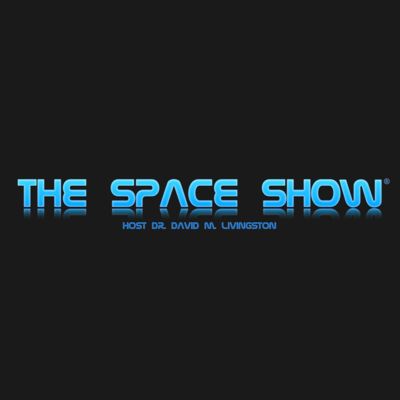The Space Show focuses on timely and important issues influencing the development of outer-space commerce, space tourism,space exploration and space development. The Space Show is committed to facilitating our becoming a space-faring nation and society with a growing and self-sustaining space-faring economy. The Space Show also focuses on other related subjects of interest to us all.
http://www.thespaceshow.com/
Kim Holder, Monday, 2-29-16
Guest: Kim Holder; Topics: Kim talked with us in-depth about her Moonwards project which you can see in detail at www.moonwards.com. Please direct all comments and questions regarding specific Space Show programs & guest(s) to the Space Show blog which is part of archived program on our website, www.thespaceshow.com. Comments and questions should be relevant to the specific Space Show program. Written Transcripts of Space Show programs are a violation of our copyright and are not permitted without prior written consent, even if for your own use. We do not permit the commercial use of Space Show programs or any part thereof, nor do we permit editing, YouTube clips, or clips placed on other private channels & websites. Space Show programs can be quoted, but the quote must be cited or referenced using the proper citation format. Contact The Space Show for further information. In addition, please remember that your Amazon purchases can help support The Space Show/OGLF. See www.onegiantleapfoundation.org/amazon.htm. We welcomed Kim Holder to the program to provide us with an in-depth look and analysis of her Moonwards project. Follow along with us by visiting her website, www.moonwards.com. During the first segment of our 1 hour 36 minute discussion, Kim started out by providing us with the history and background as to her having created the Moonwards project. It was an interesting story, including her watching videos of successful people she admired. She saw an Elon Musk video with Elon talking about going to Mars which caused her to pause since going to Mars did not make much sense to her. The result was the development of the Moonwards project which is an ongoing development project. For the rest of the first segment, Kim went into detail about Moonwards. Kim said that "Moonwards has vast potential, but it will take a great deal of work for it to live up to that. By pouring myself into it, i hope i can grow up in a way i didn't when i was younger because of health problems. In the same way, i believe we won't find the maturity to care for our planet, and move on to greater things in our future, until we pour ourselves into a project that changes our perspective and makes us see our own potential." (http://moonwards.com/about.html#about). Kim spoke to changing our perspective to enable us to have a broader and more accurate view of our place is the cosmos. Her emerging Moonwards project can help facilitate this change, especially as Moonwards grows and more and more people take part in the Moonwards interactive opportunities and eventually start going to the Moon. She spoke to facilitating our getting back to the Moon. As for the Moonwards website, she said it was open source so people can easily contribute to it, a process she explained in detail. In addition, she talked about the Virtual Moon Colony Project described on the Moonwards home page. Kim stressed that collaboration with contributors to Moonwards was very important to the success of the project. Listeners asked her several email questions. One listener wanted to know about her time line for returning to the Moon. She thought it would take 10-15 years. I brought up the perspective represented by the student I have mentioned on other programs about damaging the Moon by our going there and "exploiting" it so we should leave it as is. I asked Kim how she would respond to this student. Don't miss what she said regarding the student's perspective. Kim then spoke to changing the Moon by human activity. Don't miss what she said about lunar changes as a result of human lunar development & exploration. In the second segment, Kim was asked about O'Neill colonies in orbit rather than going to the lunar surface. She said lunar development facilitated orbital development because of less gravity on the Moon and the need for radiation shielding that equals mass. Read the rest of this summary @ www.thespaceshow.com.
